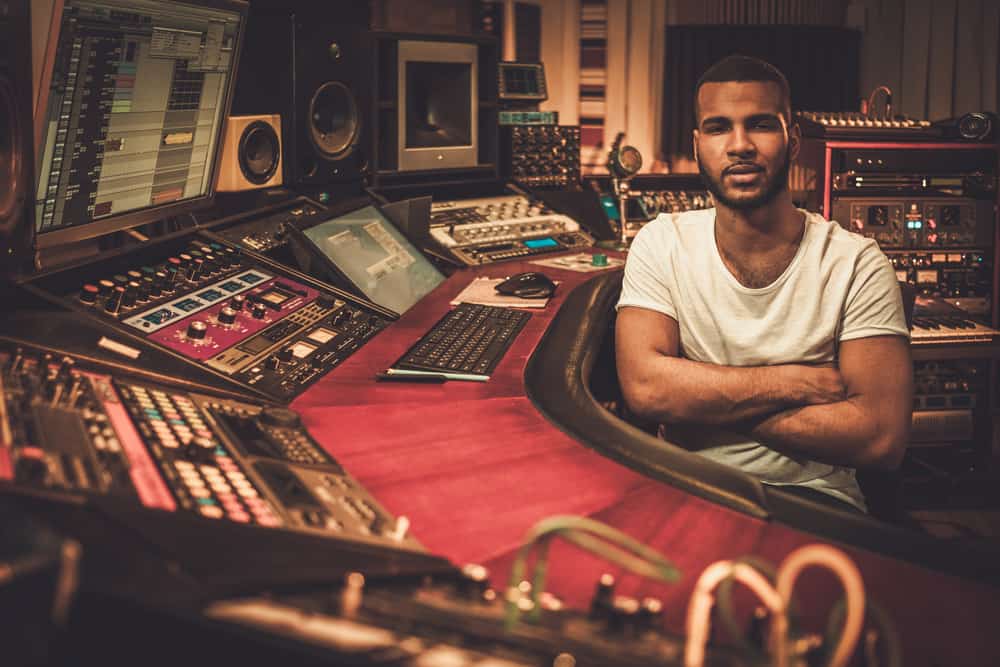It seems opening a studio is a rather complex endeavor. What are some of the main considerations when opening a studio?
“Indeed it can be. It’s a good idea to check out a few other studios and see if you can find out more about how they were set up. Decide how much you are going to be charging [and] what end of the market you are going to target and put together a reasonable plan.
If you plan to target specific types of music as a Producer, you may be able to design a setup which fits your needs without costing the earth. Good mics, preamps, monitoring and room treatment should always be the first things to think about.”
Who should open a recording studio? Where should a person be in their career to get into this business?
“Really depends on where your customers are going to come from. If you plan to record a lot of bands then it’s essential to have some experience as a Producer beforehand, with a couple of stand out tracks that get you noticed within local scenes. Alternatively, you could aim your business at solo Singers and artists (who may often be recording covers to backing tracks), in which case good advertising and a professional studio image is going to be as important as your musical output.”
Often, people who are technicians (such as those good with recording) think starting a business using their skill is a good idea, only to find out running a business and being a technician are not the same thing. Do you have any reflection about this as it pertains to owning and operating a studio?
“Of course both technical ability and business skills are equally important. You should enjoy being technically accomplished but never stop putting yourself in your customer’s shoes. Everything you do should be from this perspective. Also try and charge more money when you can and do deals for larger projects which may be enjoyable and lead to more business.”
What do you wish you had known before opening your recording studio?
“More about mixing, really. Advanced techniques, which are based around keeping an overall perspective on a track as a whole rather than nitpicking over individual sounds within it. I was always too proud to let bigger, more successful Engineers and Producers know I wasn’t as clued up as them. I wish I had asked more questions from those above me early on! Don’t be worried about what others might think about you.”
How do you suggest Recording Studio Owners find and reach out to their target market (i.e. rock bands vs. rappers, established artists vs. up-and-comers)?
“[To] decide your target market and look at where those people are recording and how much they are paying is your best start. Find people who are struggling to afford more expensive studio rates and aim to provide a comparable service at a cheaper price. Be friendly and get to know people and what they want from their recordings.”
How can Recording Studio Owners differentiate their space from the competition?
“All sorts of ways. Use your imagination. Make your space comfortable and creative. Look at your competition and give your place a different feel. Most importantly, do this while making your setup super efficient for your customers. Have a drum kit always set up with mics on it. Guitar head and can always set up. [Use] software templates which get you to third base from the get-go. Kill your setup time and get results quicker and smarter than your competitors. People will always come back to you.”
Now that home studios are becoming more prevalent, what can Recording Studio Owners do to convince artists that time at a professional studio is worth their money?
“People are doing great stuff at home now. You can simply try and do better by buying better gear and you can focus on making your system super efficient. Producers working from home studios often take a long time to get a mix working as their space isn’t acoustically treated properly.
Get your control room super tight. Do proper bass trapping and design your room using programs like ModeCalc to get things as flat as possible. Also try and have a unique sound of your own. Get in with a band you think are popular or will be popular, who you can use as a showpiece for this sound.”
Building out your home studio? Check out our picks for the year’s best vocal mics, studio monitors, and EQ plugins.
